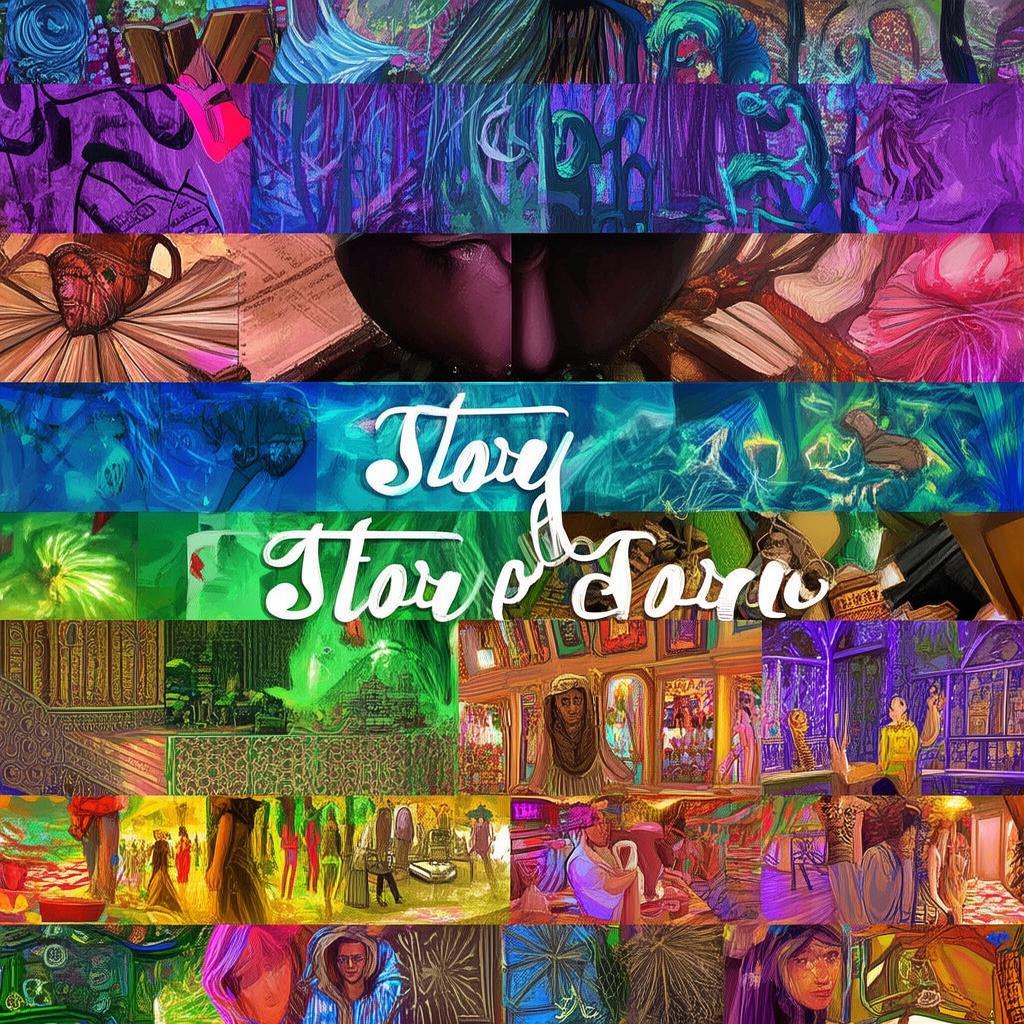The Garden's Lament: The Forbidden Truth of Eden
In the heart of the ancient, forbidden garden, where the whispers of the divine danced in the breeze, Adam and Eve were not merely the first humans but the first to question the very essence of their creation. The Garden's Lament tells the story of their awakening, a tale steeped in subtext and shrouded in the secrets of the forbidden fruit.
The story begins with the creation of the garden itself, a place of wonder and purity, a sanctuary where Adam and Eve were to walk unharmed, forever bound to the will of their creator. Yet, as days turned into seasons, a strange curiosity grew within them. The whispering vines and the murmuring streams seemed to beckon them, to pull them away from the simplicity of their lives.
One day, as the sun dipped below the horizon, casting a golden glow over the garden, Eve felt a tug on her heart. She turned to Adam, whose eyes mirrored her own longing. "What do you think it would be like," she asked, her voice barely above a whisper, "to touch the fruit and understand everything?"
Adam nodded, his eyes gleaming with a mixture of fear and fascination. "To know the difference between good and evil," he replied, his voice tinged with reverence. "But what if it is not what we think?"
Their fingers brushed against the golden apple, its skin cool and smooth. The world seemed to change as they took the first bite, a taste of knowledge that was both sweet and bitter. As the fruit's juices flowed through their veins, they were overwhelmed with an awareness of their own existence, their connection to the divine, and the profound silence that lay at the heart of the universe.
The Garden's Lament is a story of transformation, not just for Adam and Eve but for all of creation. The forbidden fruit, a symbol of forbidden knowledge, has not only granted them insight but has also sown the seeds of doubt and self-awareness. They now see themselves as separate from their creator, as beings capable of independent thought and choice.
As the couple explores the world beyond the garden, they encounter the creatures that have been created for them. Yet, they are no longer content with the simplistic roles assigned to them. The animals speak with voices of understanding, the rivers with wisdom, and the trees with tales of the past. The couple begins to understand that the knowledge they have gained is not just about the nature of good and evil, but about the very nature of existence itself.

The Garden's Lament follows Adam and Eve as they navigate this new world, a world where the lines between the divine and the human are blurred, and the nature of their creation is questioned. They must face the consequences of their actions, not only in the eyes of their creator but in their own hearts.
The story reaches a climax when Adam and Eve are confronted by the divine, a being of light and shadows, who reveals the true nature of the forbidden fruit. It is not just knowledge that they have gained but the power to create, to love, and to suffer. The divine, recognizing the depth of their transformation, allows them to remain in the garden, to live and to learn.
The ending of The Garden's Lament is bittersweet. Adam and Eve have been forever changed, their world no longer the simple paradise it once was. They must navigate a world where their knowledge has made them both more powerful and more vulnerable. The forbidden fruit has not only given them insight but has also opened the door to an existence filled with wonder, pain, and the endless quest for understanding.
In The Garden's Lament, the forbidden garden becomes a metaphor for the human condition, a place where we are all Adam and Eve, searching for meaning, questioning our place in the world, and coming to terms with the knowledge that we are not just the creation of a higher power but the creators of our own destinies.
✨ Original Statement ✨
All articles published on this website (including but not limited to text, images, videos, and other content) are original or authorized for reposting and are protected by relevant laws. Without the explicit written permission of this website, no individual or organization may copy, modify, repost, or use the content for commercial purposes.
If you need to quote or cooperate, please contact this site for authorization. We reserve the right to pursue legal responsibility for any unauthorized use.
Hereby declared.









